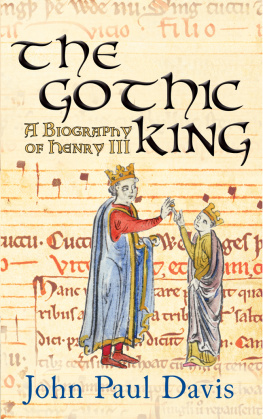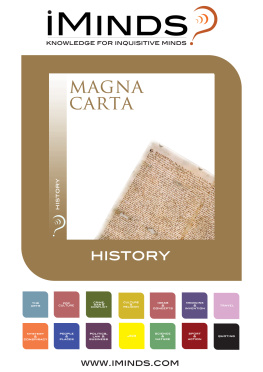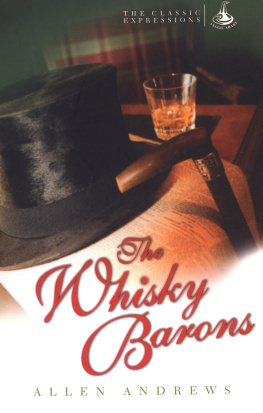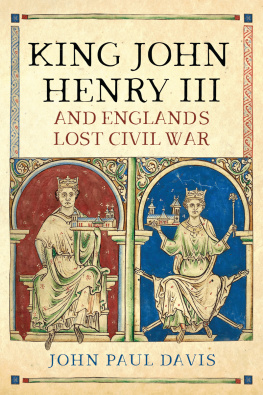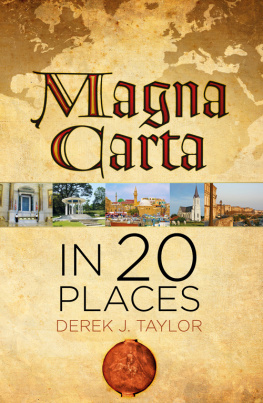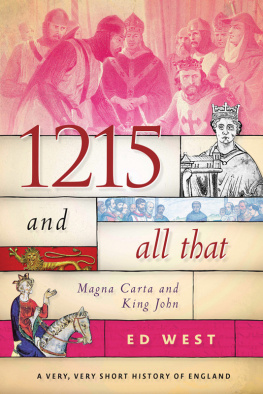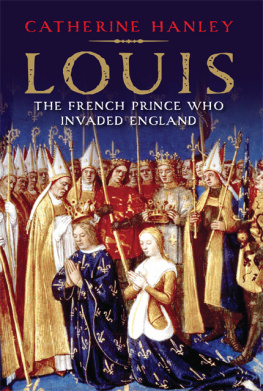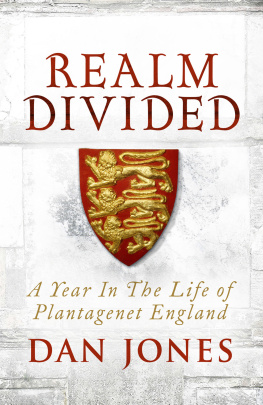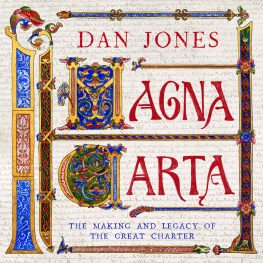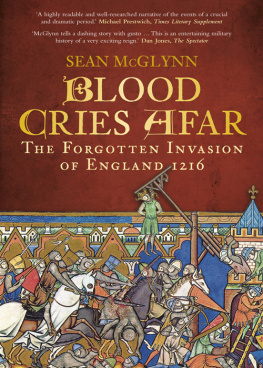WHEN JOHN DIED, ON OCTOBER 19, 1216, the issue of the war between him and the barons was still doubtful. The arrival of Louis of France, eldest son of King Philip Augustus, had enabled the barons to win back much of the ground lost after Johns early triumphs had forced them to call in the foreigner. Beyond the Humber the sturdy north-country barons, who had wrested the Great Charter from John, remained true to their principles, and had also the support of Alexander II., King of Scots. The magnates of the eastern counties were as staunch as the northerners, and the rich and populous southern shires were for the most part in agreement with them. In the west, the barons had the aid of Llewelyn ap Iorwerth, the great Prince of North Wales. While ten earls fought for Louis, the royal cause was only upheld by six. The towns were mainly with the rebels, notably London and the Cinque Ports, and cities so distant as Winchester and Lincoln, Worcester and Carlisle. Yet the baronial cause excited little general sympathy. The mass of the population stood aloof, and was impartially maltreated by the rival armies.
Johns son Henry had at his back the chief military resources of the country; the two strongest of the earls, William Marshal, Earl of Pembroke, and Randolph of Blundeville, Earl of Chester; the fierce lords of the Welsh March, the Mortimers, the Cantilupes, the Cliffords, the Braoses, and the Lacys; and the barons of the West Midlands, headed by Henry of Neufbourg, Earl of Warwick, and William of Ferrars, Earl of Derby. This powerful phalanx gave to the royalists a stronger hold in the west than their opponents had in any one part of the much wider territory within their sphere of influence. There was no baronial counterpart to the successful raiding of the north and east, which John had carried through in the last months of his life. A baronial centre, like Worcester, could not hold its own long in the west. Moreover, John had not entirely forfeited his hereditary advantages. The administrative families, whose chief representative was the justiciar Hubert de Burgh, held to their tradition of unswerving loyalty, and joined with the followers of the old king, of whom William Marshal was the chief survivor. All over England the royal castles were in safe hands, and so long as they remained unsubdued, no part of Louis dominions was secure. The crown had used to the full its rights over minors and vacant fiefs. The subjection of the south-west was assured by the marriage of the mercenary leader, Falkes de Braut, to the mother of the infant Earl of Devon, and by the grant of Cornwall to the bastard of the last of the Dunstanville earls. Though Isabella, Countess of Gloucester, Johns repudiated wife, was as zealous as her new husband, the Earl of Essex, against Johns son, Falkes kept a tight hand over Glamorgan, on which the military power of the house of Gloucester largely depended. Randolph of Chester was custodian of the earldoms of Leicester and Richmond, of which the nominal earls, Simon de Montfort and Peter Mauclerc, were far away, the one ruling Toulouse, and the other Brittany. The band of foreign adventurers, the mainstay of Johns power, was still unbroken. Ruffians though these hirelings were, they had experience, skill, and courage, and were the only professional soldiers in the country.
The vital fact of the situation was that the immense moral and spiritual forces of the Church remained on the side of the king. Innocent III. had died some months before John, but his successor, Honorius III., continued to uphold his policy. The papal legate, the Cardinal Gualo, was the soul of the royalist cause. Louis and his adherents had been excommunicated, and not a single English bishop dared to join openly the foes of Holy Church. The most that the clerical partisans of the barons could do was to disregard the interdict and continue their ministrations to the excommunicated host. The strongest English prelate, Stephen Langton, Archbishop of Canterbury, was at Rome in disgrace. Walter Grey, Archbishop of York, and Hugh of Wells, Bishop of Lincoln, were also abroad, while the Bishop of London, William of Sainte-Mre-Eglise, was incapacitated by illness. Several important sees, including Durham and Ely, were vacant. The ablest resident bishop, Peter des Roches of Winchester, was an accomplice in Johns misgovernment.
The chief obstacle in the way of the royalists had been the character of John, and the little Henry of Winchester could have had no share in the crimes of his father. But the dead king had lately shown such rare energy that there was a danger lest the accession of a boy of nine might not weaken the cause of monarchy. The barons were largely out of hand. The war was assuming the character of the civil war of Stephens days, and Johns mercenaries were aspiring to play the part of feudal potentates. It was significant that so many of Johns principal supporters were possessors of extensive franchises, like the lords of the Welsh March, who might well desire to extend these feudal immunities to their English estates. The triumph of the crown through such help might easily have resolved the united England of Henry II. into a series of lordships under a nominal king.
The situation was saved by the wisdom and moderation of the papal legate, and the loyalty of William Marshal, who forgot his interests as Earl of Pembroke in his devotion to the house of Anjou. From the moment of Johns death at Newark, the cardinal and the marshal took the lead. They met at Worcester, where the tyrant was buried, and at once made preparations for the coronation of Henry of Winchester. The ceremony took place at St. Peters Abbey, Gloucester, on October 28, from which day the new reign was reckoned as beginning. The marshal, who had forty-three years before dubbed the young king Henry a knight, then for a second time admitted a young king Henry to the order of chivalry. When the king had recited the coronation oath and performed homage to the pope, Gualo anointed him and placed on his head the plain gold circlet that perforce did duly for a crown.[1] Next day Henrys supporters performed homage, and before November 1 the marshal was made justiciar.
[1] There is some conflict of evidence on this point, and Dr. Stubbs, following Wendover, iv., 2, makes Peter of Winchester crown Henry. But the official account in Fdera, i., 145, is confirmed by Ann. Tewkesbury, p. 62; Histoire de G. le Marchal, lines 15329-32; Hist. des ducs de Normandie, et des rois dAngleterre, p. 181, and Ann. Winchester, p. 83. Wykes, p. 60, and Ann. Dunstable, p. 48, which confirm Wendover, are suspect by reason of other errors.
On November 2 a great council met at Bristol. Only four earls appeared, and one of these, William of Fors, Earl of Albemarle, was a recent convert. But the presence of eleven bishops showed that the Church had espoused the cause of the little king, and a throng of western and marcher magnates made a sufficient representation of the lay baronage. The chief business was to provide for the government during the minority. Gualo withstood the temptation to adopt the method by which Innocent III. had ruled Sicily in the name of Frederick II. The kings mother was too unpopular and incompetent to anticipate the part played by Blanche of Castile during the minority of St. Louis. After the precedents set by the Latin kingdom of Jerusalem, the barons took the matter into their own hands. Their work of selection was not an easy one. Randolph of Chester was by far the most powerful of the royalist lords, but his turbulence and purely personal policy, not less than his excessive possessions and inordinate palatine jurisdictions, made him unsuitable for the regency. Yet had he raised any sort of claim, it would have been hardly possible to resist his pretensions.[1] Luckily, Randolph stood aside, and his withdrawal gave the aged earl marshal the position for which his nomination as justiciar at Gloucester had already marked him out. The title of regent was as yet unknown, either in England or France, but the style, ruler of king and kingdom, which the barons gave to the marshal, meant something more than the ordinary position of a justiciar. Williams friends had some difficulty in persuading him to accept the office. He was over seventy years of age, and felt it would be too great a burden. Induced at last by the legate to undertake the charge, from that moment he shrank from none of its responsibilities. The personal care of the king was comprised within the marshals duties, but he delegated that branch of his work to Peter des Roches.[2] These two, with Gualo, controlled the whole policy of the new reign. Next to them came Hubert de Burgh, Johns justiciar, whomthe marshal very soon restored to that office. But Hubert at once went back to the defence of Dover, and for some time took little part in general politics.


